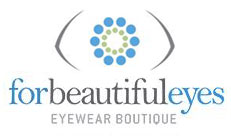Enhancing Vision for Better Learning and Development
At For Beautiful Eyes, we understand that good vision is crucial for your child's learning and development. Behavioural Optometry goes beyond just checking visual acuity; it addresses various visual skills essential for effective learning and daily activities.
How does Behavioural Optometry Work?
Even if your child has 20/20 vision, they might still experience vision problems that can affect their academic performance. Behavioural Optometry focuses on assessing and improving various visual skills to ensure your child can learn and develop to their full potential.
It's important to note that while behavioural optometry can address vision problems that contribute to learning difficulties, it does not correct learning disabilities. Our goal is to ensure your child has the best possible visual foundation to support their learning.
Assessment of Your Child's Visual Skills
Eye Movement Skills: Evaluate how smoothly and accurately your child's eyes move across a page when reading.
Eye Focusing Abilities: Check if your child can easily change focus from near to far objects, such as from a whiteboard to their desk.
Eye Teaming Skills: Ensuring both eyes work together properly for accurate reading and focusing.
Binocular Vision Skills: Assessing if your child's eyes blend visual images from both eyes into a single, three-dimensional image.
Visual Perceptual Skills: Determining how well your child identifies and understands what they see and how they connect it with previously learned information.
Visual-Motor Integration: Examining the coordination between your child's eyes and hands is crucial for activities like handwriting and sports.
How Vision Problems Affect Children's Learning
Undetected vision problems can significantly hinder a child's learning. Children with untreated vision issues might be misdiagnosed with behavioural problems. Studies show that 1 out of 4 school-age children suffer from at least one learning-related vision problem, which can impact their academic performance and social interactions.
How do I Know if My Child Has a Vision Problem?
Watch for these common signs that may indicate a vision problem:
- Double vision, especially during or after reading
- Poor handwriting
- Hyperactivity or recklessness in class
- Word and letter reversals
- Difficulty staying focused while reading
- Poor reading comprehension
- Avoidance of reading
- Blurred vision after close work
- Eye strain or frequent headaches
Vision and Eye Health Exams for Children at For Beautiful Eyes
A comprehensive vision exam for children includes all standard eye tests plus additional assessments for learning-related vision problems. Tests may consist of accommodation, binocular vision, and ocular motility testing. Depending on your child's specific issues, further testing may be recommended.
If your child has a learning-related vision problem that cannot be corrected with regular glasses or contact lenses, we may recommend special reading glasses or tailored behavioural optometry. This involves eye exercises and other activities to improve specific vision skills.
Behavioural Optometry for Your Child in The Junction
If you notice any signs of vision problems in your child or are concerned about their academic performance, schedule a behavioural optometry consultation at For Beautiful Eyes. Our experienced team is dedicated to helping your child achieve their full potential.
The Junction, NSW 2291
- Monday: 9:00 AM - 5:00 PM
- Tuesday: 9:00 AM - 5:00 PM
- Wednesday: 9:00 AM - 5:00 PM
- Thursday: 9:00 AM - 5:00 PM
- Friday: 9:00 AM - 5:00 PM
- Saturday: Closed
- Sunday: Closed
